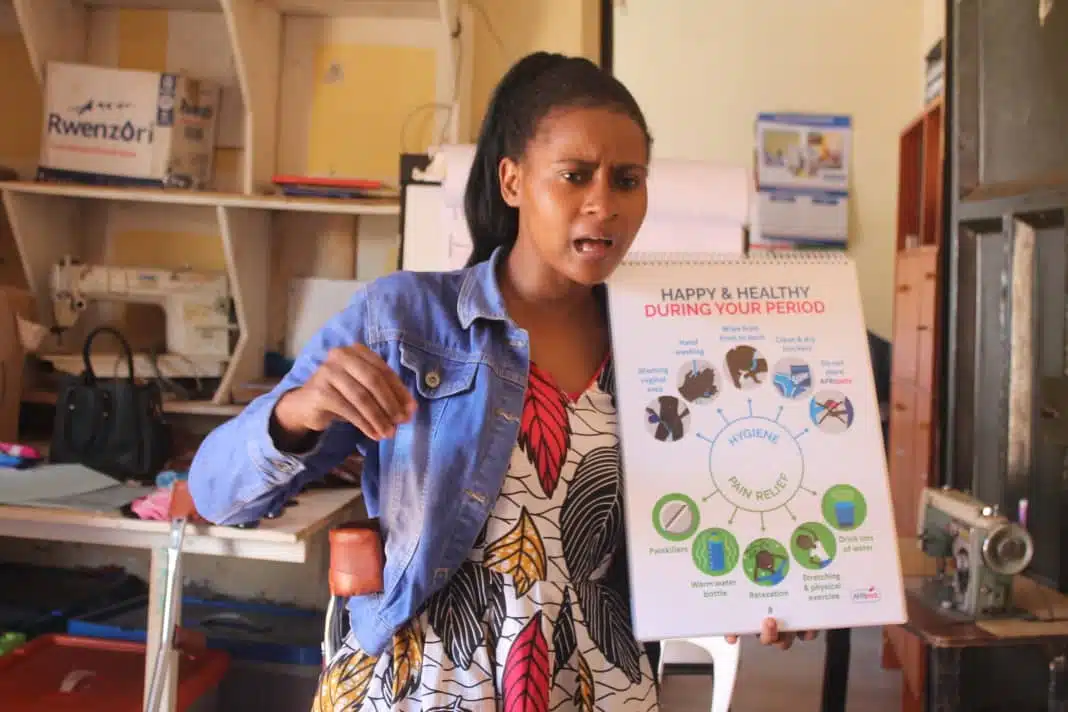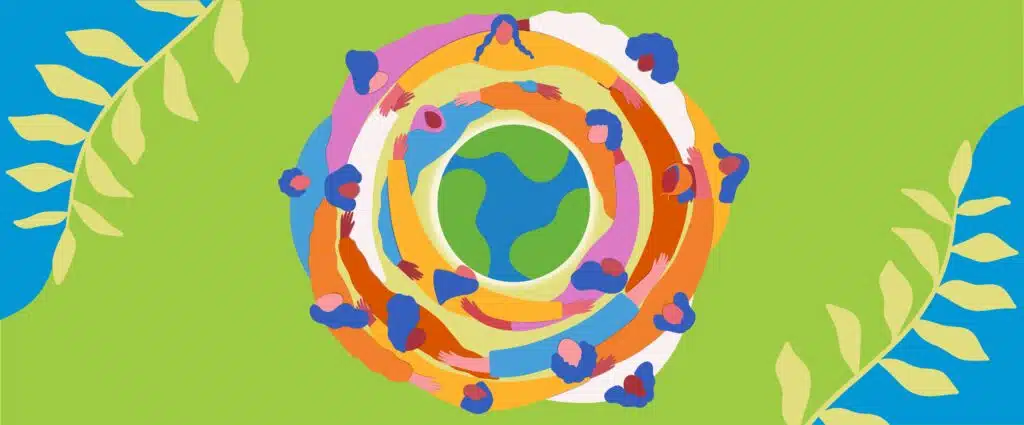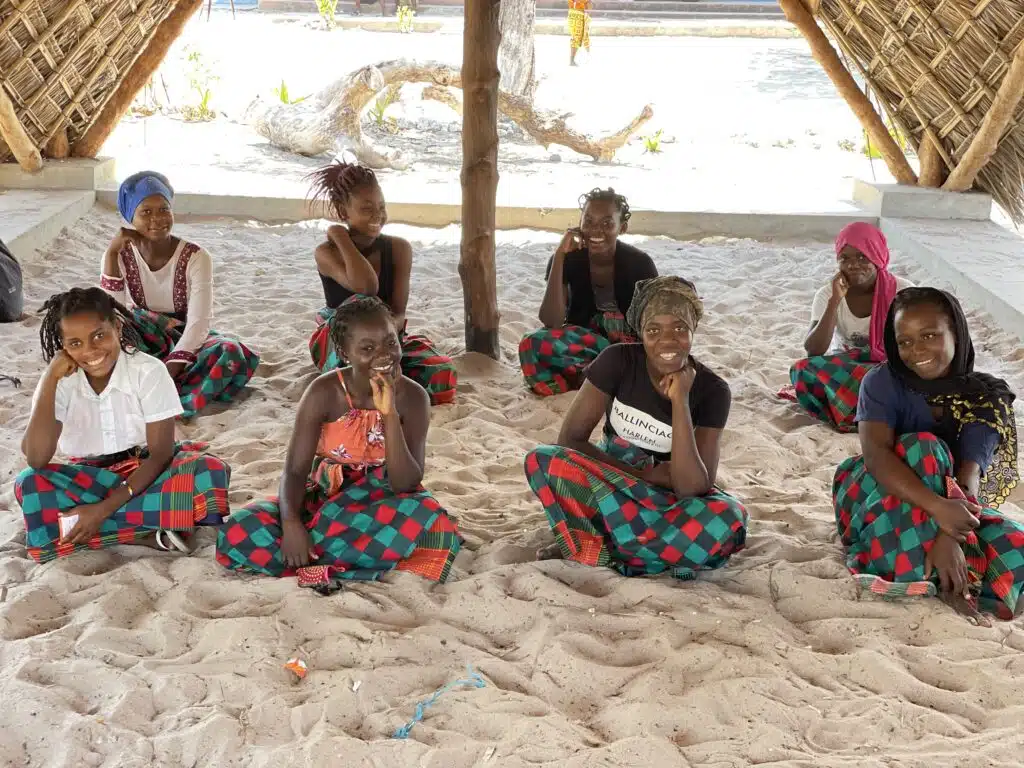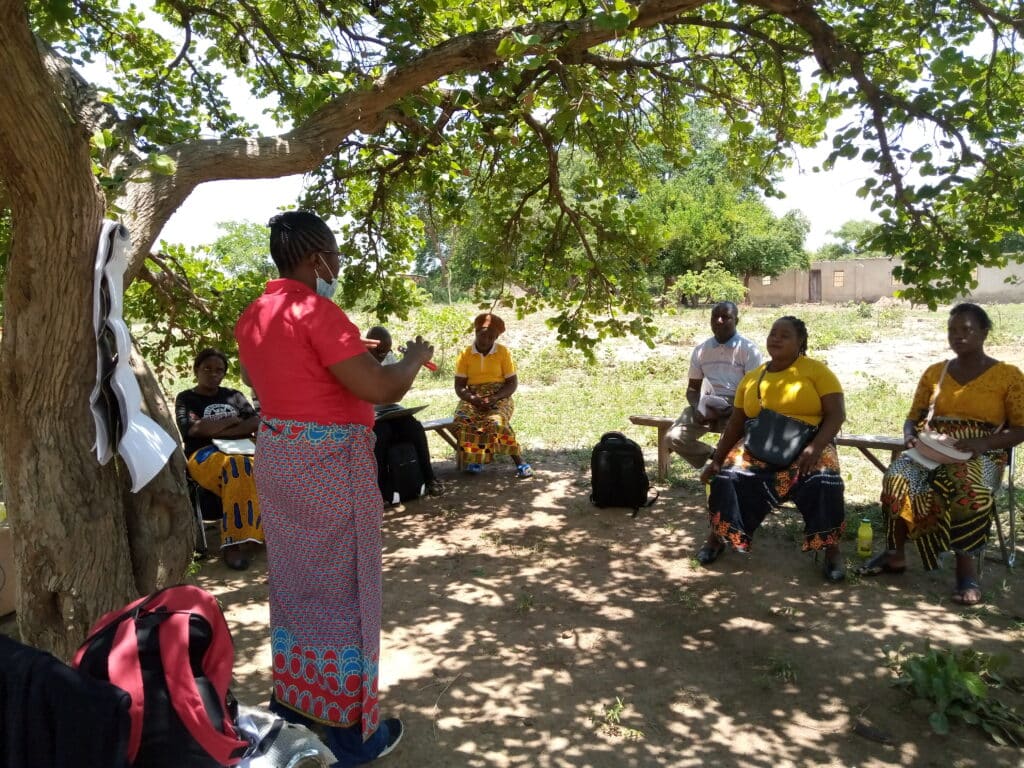Disability impacts all of us because it is our mandate to ensure that everyone, including those with disabilities, enjoys their rights; however, they are often overlooked and marginalized, including in programming and designing products that are optimal to their needs. According to the Centers for Disease Control, a disability is any condition of the body or mind (impairment) that makes it more difficult for a person to perform certain activities (activity limitation) and interact with the world around them (participation restrictions).
As AFRIpads, we have been working with Lillian Fonds and their local Ugandan partners to enhance menstrual health for women and girls with disabilities. We are pleased to feature Maureen Kalungi, who shares her life experience in advancing menstrual health and hygiene while supporting other women in her community living with disabilities.
The Interview
Hi! I am Maureen Kalungi, a gender and disability advocate from Kampala, Uganda. I’m passionate about empowering girls, women, and children with disabilities, especially regarding menstrual health and hygiene. My work involves advocating for their rights and challenging systems that exclude them. I recently learned about AFRIpads through a Training of Trainers program with Lilliane Fonds. I’m excited about their focus on accessibility and believe AFRIpads can make a real difference in the lives of girls and women with disabilities here in Uganda.
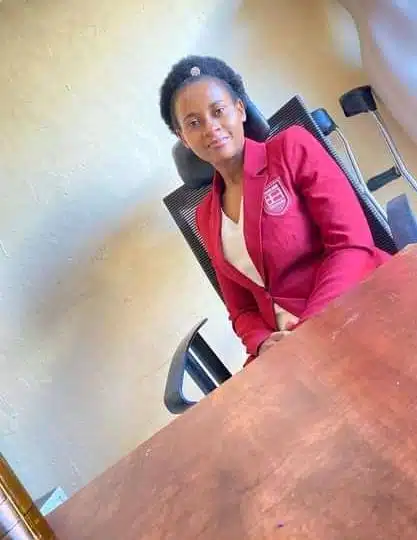
AFRIpads: How did you become an advocate for menstrual health?
Maureen: Growing up with a physical disability, I often felt isolated and confused about menstruation. There simply weren’t many resources available such as manuals showing how to use the different products like nowadays. Hearing similar stories from other girls with disabilities further ignited my passion to take action. I started educating myself, learning about menstrual health, period poverty, stigma, and Sexual and Reproductive Health and Rights. I am committed to using my voice to advocate for accessible menstrual health education and resources for all girls and women with disabilities.
AFRIpads: When using reusable pads, what has been your experience as a person with a disability?
Maureen: Ever Since I started menstruation at the age of 13, I have used a variety of sanitary towels such as cloths, reusable pads, and single-use pads. However, I decided to use reusable pads because I found them affordable, comfortable, and breathable. They don’t irritate and I also feel like it’s part of my skin. Also whenever I’m using them I see myself as an environmental activist since I reduce disposable waste in my community.
AFRIpads: Do you have any suggestions regarding how advocacy for menstrual health can better include the perspectives and needs of people with disabilities?
Maureen: If we could emphasize the principle of “leave no one behind” and “nothing for us without us” by conducting accessible and inclusive research to understand the specific needs of girls and women with disabilities. There is also a need to conduct accessible and inclusive awareness campaigns and to provide a safe space for girls and women with disabilities to share their experiences. Promoting inclusive language such as sign language and accessible Informative Educative and Communicative materials, and representation in menstrual health advocacy will enable all categories of disabilities to be heard of. By taking all these steps, advocacy efforts can become more inclusive and effective in addressing the unique challenges we go through as girls and women with disabilities hence, ensuring equal access to menstrual health.
AFRIpads: In what specific instances have you experienced support (or lack of support) from current menstrual health products and services?
Maureen: I have had a positive experience with reusable sanitary pads like AFRIpads, which offer effective absorbency and leak protection. As a person with mobility impairment, I have found them to be comfortable and convenient. Additionally, the growing awareness campaigns led by organizations of persons with disabilities and companies producing reusable pads have significantly impacted my life. The increased education and dialogue around menstrual health have boosted my self-esteem during my period days. I feel more empowered and confident, thanks to these initiatives.
AFRIpads: How can organizations like AFRIpads create more inclusive environments for people with disabilities?
Maureen:
- AFRIpads can involve girls and women with different disabilities in product design and testing to understand what suits them better. They can provide accessible packaging, labeling, and instructions. Furthermore, AFRIpads can feature models with disabilities in marketing and advocacy campaigns to increase visibility and ownership of the product.
- AFRIpads can also offer customized products such as panty pads and panties with adjustable straps to accommodate different impairments such as sensory and mobility. By partnering with organizations of persons with disabilities to conduct research and gather feedback from users with disabilities.
- AFRIpads can raise awareness and promote inclusivity by training staff on disability awareness and inclusive practices. AFRIpads can also provide customer support through accessible formats such as alt text, closed captions, and sign language.
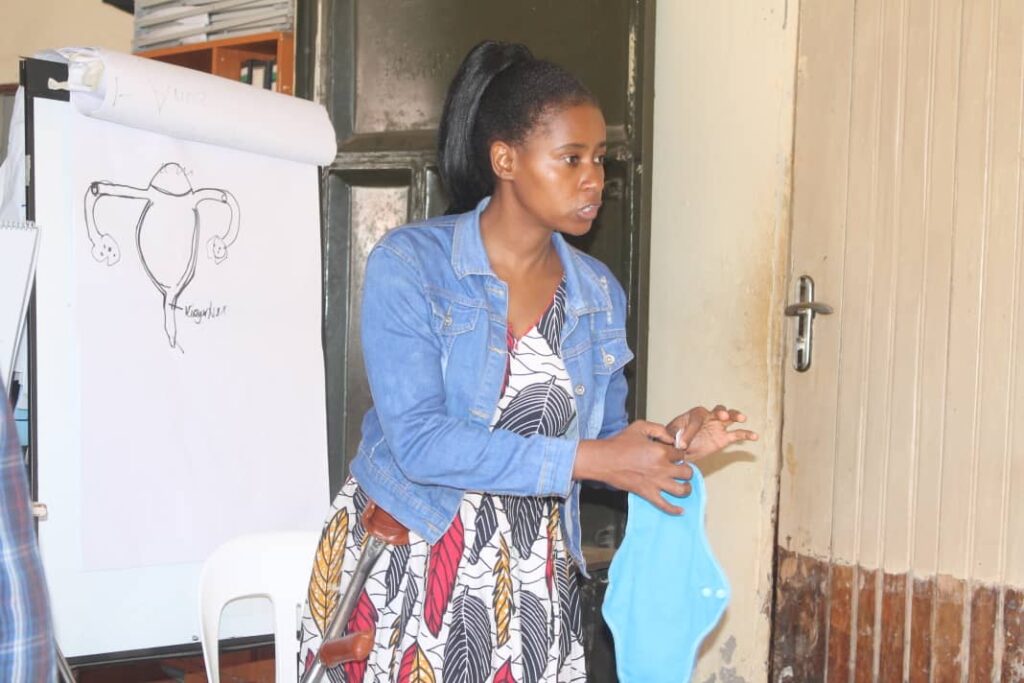
AFRIpads: What has been your experience with AFRIpads and Lilliane Fonds Training of Trainers programs? Are they effective?
Maureen: AFRIpads and Lilliane Fonds Training of Trainers programs effectively empowered me to manage my menstrual health and support others. These programs created a safe space where I could share my experience with AFRIpads and connect with a community of girls and women with disabilities who understand the unique challenges we face. Beyond the sense of belonging, the training equipped me with knowledge and skills.
I learned how to address the fears and concerns younger people with disabilities might have about reusable menstrual products and menstrual health management in general.
I equally gained the confidence to teach proper usage and care for reusable pads to ensure good hygiene. The program also opened my eyes to the environmental impact of single-use products and the benefits of sustainable alternatives like AFRIpads. Thanks to this training, I am empowered to educate and support others in managing their periods with dignity and making environmentally conscious choices.
AFRIpads: Do you have any message or advice for other people with disabilities who might be hesitant to switch to reusable pads?
Maureen: To fellow people with disabilities, consider giving reusable pads a try! They’re often made with comfortable, breathable materials that won’t irritate your skin. Plus, reusable pads come in various shapes and sizes, which can help find a good fit that won’t fold uncomfortably. There are also environmental benefits like reducing waste and cost-effectiveness compared to buying single-use pads all the time. Washing them might seem like an extra chore, but soaking them before washing them makes them manageable. Don’t fear asking for help! Friends, caregivers, and trained peers who use reusable pads can offer encouragement and guidance. You can also connect with online communities specifically for people with disabilities who use reusable pads. There, you can share tips, find inspiration, and feel supported in your journey towards reusables.
